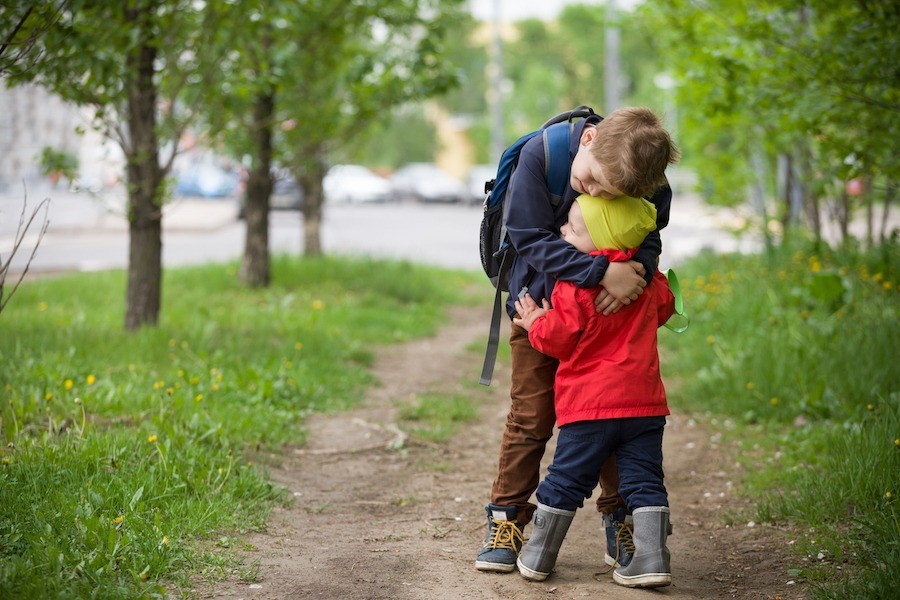- 855.224.8655
- Schedule a Tour

Children at the toddler and preschool years are often focused on the self, as they begin to learn that they have their own unique identity. They are exploring their independence, and this is an exciting time! However, it is important for them to learn to think of others as well.
Empathy is a complex concept that many little ones struggle with at this age. As a parent, you can foster a sense of compassion in your children from a young age. Here are some tips for how to teach empathy to children.
Expand Their Emotional Vocabulary
Children cannot fully understand feelings they can’t name. Once your child reaches preschool, make sure to expand his or her vocabulary with new “feeling” words like “anxious,” “excited,” “frustrated,” etc. If you’re reading with your toddler, teach simple emotional words like “happy” or “sad.” Demonstrate what these words mean by putting them into context: “Mommy was mad that she burned the toast.” Abstract words are hard to truly grasp. When you pair them with nonverbal cues, and explain the source of the emotion, this helps your child comprehend the meaning of the word.
Talk about Feelings
Be sure to talk about feelings whenever you, your child, or someone around you experiences them. If your child smiles, point out that a smile means he or she must be happy. It’s also helpful to imagine what other people are feeling in different situations. For example, the child who falls off a bike at the playground is probably feeling scared and in pain. Fictional characters are especially useful for this imaginative exercise. As you and your child read a book, watch a movie, or play with toys, talk about how the characters might be feeling.
Model Empathetic Behavior
Practicing empathy yourself is one of the best ways to teach it. Your child looks to you for behavioral cues, so your actions are much more effective than your words. Be sure to model empathy whenever possible. You might strike up a conversation with the clerk at the grocery store, for example, and ask her how his or her day is going. This shows your child that it’s important to take an interest in others.
Brainstorm Ways to Show Empathy
You can teach your child empathy without even interacting with others. Simply brainstorming ways to show empathy is an effective teaching technique. You can make a game out of it by asking your child to imagine how a person or animal is feeling based on his or her body language and expressions. Then you can ask your child how he or she might respond to this person’s emotions. For example, if you see a little boy crying, an appropriate response might be to ask what made him sad and offer comfort.
Explore Diversity
A big part of empathy is understanding that we have different personalities and traits, yet we all experience the same emotions. Encourage your child to notice diversity in his or her friends, family, and others.
This is especially important when it comes to disabilities. Your child should understand that people have different physical and mental capabilities, but that doesn’t mean they are all that different emotionally. We are all human beings, and we all experience similar feelings. Teach your little one this concept, and he or she will learn respect for people from every background.
Encourage Your Child to Show Empathy
Positive reinforcement is vital for teaching appropriate behaviors. Make sure to notice when your children show empathy, and offer encouragement in response. Also explain how the behavior was compassionate. You might say something like, “It made Daddy very happy when you offered to help him clean up the garage. That was a nice thing to do, and it showed you were thinking of how he might feel overwhelmed by all of his chores.” When you encourage your child, he or she will learn more effectively.
Empathy is an important life skill for your child to learn, but it can be a challenge for him or her to understand such a complex concept. These tips for how to teach a child empathy are a good start. U-GRO can also help foster your little one’s sense of empathy. Find out more about U-GRO’s toddler or preschool curriculum, and how it can teach empathy and other social and emotional skills.
